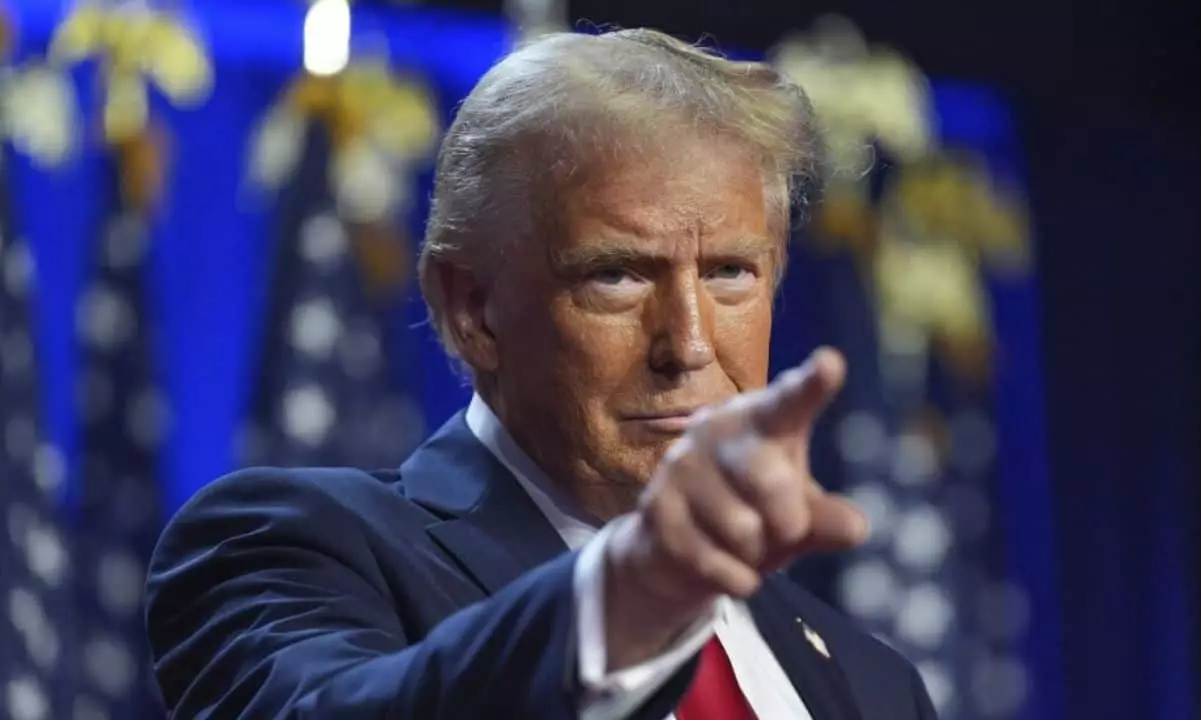The recent election of Donald Trump as the pro-crypto candidate has sent ripples through the digital asset market, stirring optimism and speculation among investors and stakeholders. As the Trump administration gears up for its official start in January, the industry is poised for a period of transformative change. A quarterly report from Bybit, in collaboration with crypto research firm Blocks Scholes, underscores the anticipation of heightened institutional participation, regulatory overhauls, and a favorable trajectory for Bitcoin (BTC) and its altcoin counterparts. This optimism reflects a notable shift in sentiment compared to Trump’s earlier skepticism towards cryptocurrencies, marking an evolution in his stance toward a more progressive outlook on digital finance.
One of the pivotal promises of Trump’s campaign was to develop explicit policies and regulatory frameworks for digital assets, positioning the United States as a global leader in the crypto landscape. The new administration’s commitment could instigate a more innovation-friendly environment that aligns closely with the interests of crypto enthusiasts and businesses. Investment in creating a robust regulatory framework could help mitigate the uncertainties that have long plagued the industry, fostering a climate ripe for growth and innovation. The notion of Trump as America’s first crypto president heralds a new era where policy and technology may interlink more seamlessly.
The Bybit and Blocks Scholes report suggests that the Republican majority in both congressional houses could facilitate significant legal changes that impact cryptocurrency. Pro-crypto lawmakers stepping into office may champion bills like the Financial Innovation and Technology for the 21st Century Act (FIT21 Act), aiming to provide the regulatory certainty that many industry participants have been craving. This comes at a time when targeted political contributions from crypto organizations have already begun reshaping priorities, particularly influencing crucial Senate races. The implications of such legislative movements could be profound, offering the potential for clearer guidelines that can stimulate investment and growth.
Additionally, the shift in administration could breathe new life into the decentralized finance (DeFi) sector, which faced scrutiny and legal challenges under the previous administration. Trump’s pro-cryptocurrency stance may invite renewed investment into platforms powered by innovative smart contract technology, enabling a resurgence of interest in decentralized applications. As regulatory barriers begin to soften, investors may find themselves more willing to explore these uncharted territories, which could lead to a broader acceptance of DeFi solutions.
In response to this political landscape, Bitcoin has rallied significantly, reportedly rising over 47% since Trump’s election victory. With BTC nearing the critical threshold of $100,000, market traders are exhibiting an optimistic outlook for continued upward momentum. This bullish sentiment mirrors the broader expectations surrounding the anticipated changes in policy and regulation, which could further solidify Bitcoin’s standing and bolster the presence of altcoins in the market narrative. As the new administration lays down its foundations, the intersection between politics and digital assets could pave the way for a new chapter, characterized by innovation and increased investment in the cryptocurrency ecosystem.
















Leave a Reply